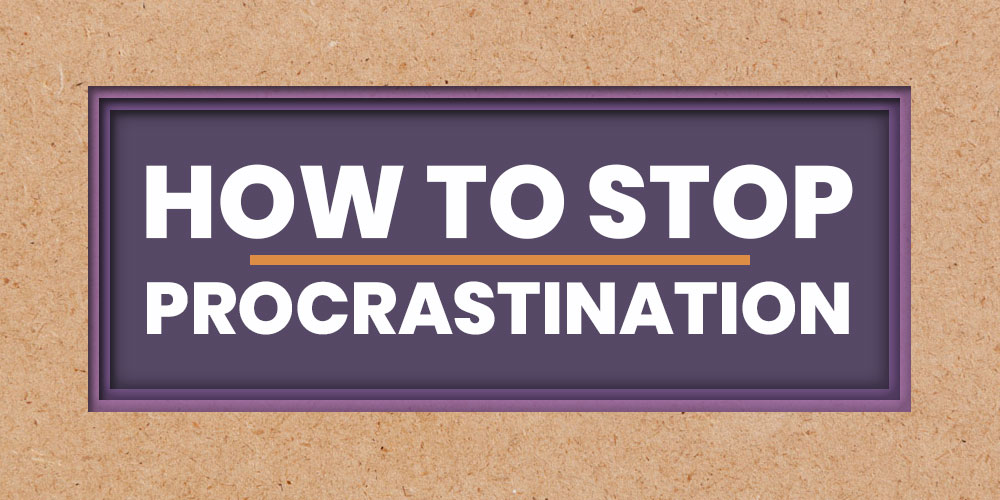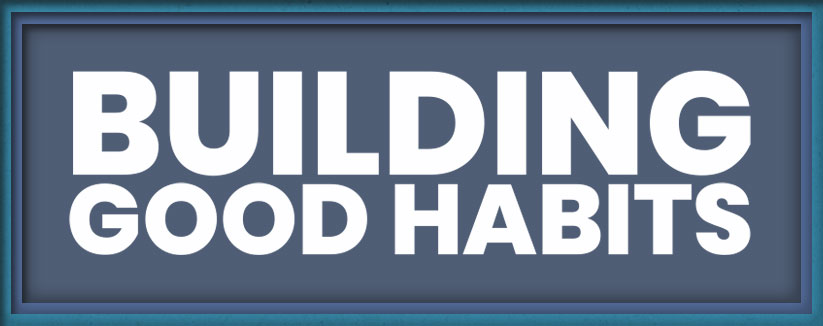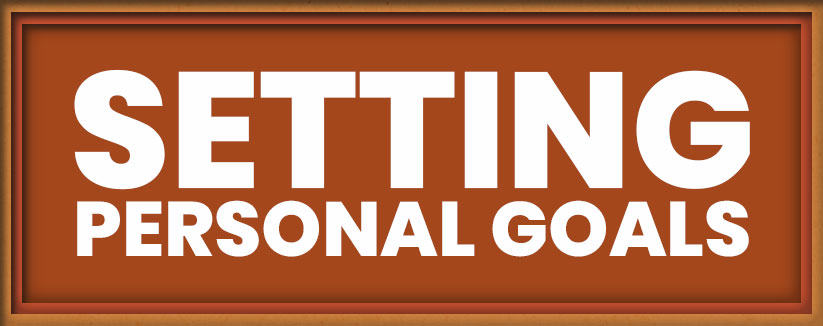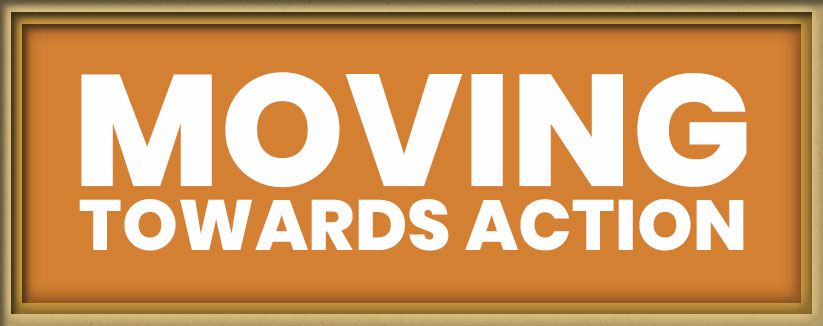 I have to admit, there are times when I’ve been a procrastination pro in my life, but I’ve come around and learned how to stop putting things off before it got out of hand. So, I figured who better to share a few tips on how to stop procrastination than from a person who was once a huge procrastinator himself.
I have to admit, there are times when I’ve been a procrastination pro in my life, but I’ve come around and learned how to stop putting things off before it got out of hand. So, I figured who better to share a few tips on how to stop procrastination than from a person who was once a huge procrastinator himself.
What Is Procrastination?

At its core, procrastination is delaying a task for later in the future because we don’t feel compelled enough to do it right now. A good way to look at it is realizing there are two selves: a present self and a future self. Procrastination is when our present self pushes off the pain of doing something to our future self.
How To Stop Procrastinating For Good

Understanding that there is a current self and a future self, we have a decision to make. Are we going to set up our future self for success or failure? To help drive this point home, I even go as far as visualizing a scenario where my future self could come back and say “what the hell man!” about a decision to shirk off something.
Why Do We Procrastinate?

After many years of putting things off, I sat down and asked why I don’t get things done. It was then that I realized that procrastination is a state where not doing something has less pain than the pain you’ll incur by doing the task.
An example is if you’re just a little hungry but have no food in your house, you’ll put off getting up to drive to the store. Later, when you’re really hungry, the “pain” of hunger is larger than the pain of going to the store. So, you get up and drive to get food.
That means procrastination is a function of pain. It was then I realized that if we can manipulate the level of pain, we can push ourselves forward to get things done.
Adding Pain To The Process

Realizing that pain was the key variable here, I had to figure out a way to control the level of pain in the equation. It was this hack that I learned a long time ago when I wanted to stop drinking sodas. It seems odd at first, making things even harder, but stick with me here…
I knew it would be challenging to stop drinking sodas. At first, I said I could drink sodas with one caveat. I could drink soda; I just couldn’t buy a pack of soda for the house. What I could do though, was get in my car and drive to the gas station down the road and buy one bottle of soda to drink.
Why did this work? I wasn’t denying myself the soda, I just added the pain of having to get in my car and driving to get it. Each time I wanted a soda, I had to weigh the hassle vs. how much I wanted it.
Taking this lesson and applying it to things we are procrastinating on we can see how pain will come into play. This little trick lets us overcome procrastination by making the pain for the present self higher than the pain of doing the task. Adding pain makes a huge difference.
Visualizing Failure

Another way to add pain to the process is to envision yourself not fixing your bad habits. Visualize how it could spiral out of control later in life, what is the inevitable result if we don’t fix this now? We want to take this to the most realistic extreme.
If you want to stop drinking so much, imagine what it would be like if you didn’t make the change. Imagine you drink a little more each day leading you to sleep through your alarm a few too many times. Your boss notices and fires you, which leads you to drink more, and eventually your spouse leaves you. You drive drunk back from the bar and end up killing an innocent person. You end up in jail for manslaughter.
This may seem a bit dramatic, but Let your mind go wild here and sit with that dread, angst, and self-loathing. This vision of the future may never happen, but you could use that pain to pile on your current state in order to push you forward.
How To Use Accountability

Much like my methods before, accountability is another way to layer on pain, just from a different source. At its core, accountability is about adding in social and peer pressure to a positive outcome.
I have found this effective when doing my work through a mastermind group, which for the uninitiated, is a business accountability group. Each week I had to show up and layout what I actually got done, they’d compare that to what I said I’d do the week previous. This meant I added the pain of the social pressure by having to answer for my failings.
The social pressure of an accountability partner is a great technique if you can find the right people for it. I’ve found it hard to find people who could call me out on my own excuses because those types of people are also sympathetic to your circumstances.
It is easy for people that care to go easy on you. In a funny way, they too are trying to avoid the pain of social discomfort today, even though they know you’d be better for it if they went through the pain now.
Understand That Every Decision Has A Price

Understand that life is really a series of choices and it can be easy to think that the small little decisions – read: compromises – we make add up to major currents in our lives. It can seem trivial to choose water at dinner over a diet soda, both have no calories, right? But the cumulative effect of these can pile up fast.
The best illustration I’ve had to this effect comes from a conversation I had with a multi-metal Olympian. He said every decision he makes, he thought of it like building himself a castle, stone by stone. Each choice he made, he’d literally visualize himself laying a new stone to build his castle. If he made a bad choice, he would visualize himself walking up to the wall and pushing over a section of it.
Another approach and a technique I’ve used to good effect is when I’m faced with a decision, I ask “is this getting me closer or further from my goal?” This let me put my decisions into context and make good decisions time after time.
Understand that every choice has a price. The question is are you willing to pay the bill for your bad decisions when it comes due?
Do The Work

At the end of it all, we will have the life we build for ourselves. There is no magic bullet, short cut or trick to make it happen other than to do the work. We need to ask ourselves what is the life we want for ourselves and what pain we are willing to endure to make it happen.
Be the person that sets aside excuses. Be the person that gets things done. Be the person who does the things which will get you to where you want to be. The space between where you are today and where you want to be in the future is filled with hard work. Stop procrastinating and get on with it!
Your Turn!
- What tricks do you use to stop procrastinating?
- What are some ways you can overcome your favorite excuse?
THE FOUNDATIONS
Click Titles To Visit Each Post






Great guidance, Ryan! What kills me is that I procrastinate on things I enjoy, no pain at all. I can’t think of anything I don’t actually enjoy, since the pleasure of completing a task is great.
I blame the computer on my time management problem. It’s so easy to get sucked in and look up hours later in shock. I also have a giant dose of fear of failure. Oh, and horrible self-discipline.
Thanks for proving that procrastinators can reform, and showing how you came out on the good end of it. I crave efficiency and success…I can tell as I write the words that I do not believe I’m capable enough to achieve them. SAD!
Thank you both , Ryan for your very perceptive and useful article, and Kathleen for your heartfelt comment. You both make a lot of sense and I do appreciate your honesty. I’ve been struggling for months with depression, brought on by long-term unemployment when I lost my livelihood suddenly when Covid hit hard early last year. Depression saps one’s energy like you can’t imagine, making it hard to do even the things I enjoy doing (like you had mentioned, Kathleen). Giving up is not an option, but getting through it is tough. Ryan, I think your point about imagining the end result of your life if you keep putting things off, is worth gold! Thank you. 😉
Great article! Overcoming procrastination is a challenging task and requires constant effort and self-awareness.
Some tips that I would suggest to stop procrastination:
1. Set clear and achievable goals
2. Prioritize your tasks
3. Schedule your day
4. Break down the day into small tasks
5. Set deadlines for yourself
6. Start with a task that seems boring and challenging.
Also, check out this great website https://yourmentalhealthpal.com/. Highly recommended.